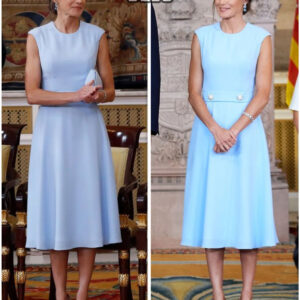Howard Stern Alleges Oprah Winfrey’s Controversial Management of Employees
In a shocking turn of events, Howard Stern, the outspoken radio personality known for his provocative commentary, has leveled serious accusations against media mogul Oprah Winfrey. Stern’s allegations suggest that Winfrey’s management practices include what he describes as enslavement of her employees. This explosive claim has sparked intense scrutiny and debate about workplace ethics, celebrity influence, and the treatment of staff within the realm of high-profile media enterprises.
Howard Stern, known for his no-holds-barred style, made headlines with his allegations during a recent broadcast of his radio show. Stern claimed that Oprah Winfrey imposes stringent control over her staff, likening their working conditions to a form of enslavement. He argued that Winfrey’s management style fosters an environment of excessive demands, little personal autonomy, and intense pressure on her employees.

Stern’s accusations have reverberated throughout the media landscape, drawing attention to the ethical implications of powerful individuals in entertainment and media exerting control over their workforce. His statements have prompted a wave of reactions from both supporters and critics, highlighting broader concerns about workplace culture and employee rights.
The response to Stern’s allegations has been mixed, with some in the entertainment industry expressing support for his outspoken stance on workplace issues. Critics, however, have questioned the validity of Stern’s claims, citing the lack of concrete evidence and the potential for sensationalism in his rhetoric.
Meanwhile, discussions among industry insiders have underscored the complexities of managing large-scale media enterprises and the responsibilities that come with leadership positions. The controversy has reignited debates about corporate governance, employee welfare, and the balance of power in high-profile organizations.
In the wake of Stern’s allegations, Oprah Winfrey has yet to publicly address the specific accusations of employee mistreatment. Her representatives have issued statements emphasizing her commitment to fostering a positive work environment and supporting her team members’ professional growth and well-being.

Winfrey’s defenders point to her long-standing reputation as a humanitarian and advocate for social justice, highlighting her philanthropic efforts and initiatives aimed at empowering individuals through education and media representation. They argue that Stern’s allegations may be sensationalized and overlook the positive impact of Winfrey’s leadership in promoting diversity and inclusivity within the entertainment industry.
Beyond the immediate controversy, Howard Stern’s allegations against Oprah Winfrey have sparked broader discussions about workplace culture, leadership accountability, and the treatment of employees in high-pressure environments. The incident has prompted reflection on the responsibilities of influential figures in shaping organizational culture and fostering a healthy work-life balance for their staff.
The scrutiny surrounding Winfrey’s management practices serves as a reminder of the challenges faced by employees in industries where high expectations and intense scrutiny are the norm. It also raises questions about the ethical boundaries of leadership and the need for transparency in addressing workplace issues.

As the debate continues, there is a growing call for greater transparency and accountability among leaders in entertainment and media. Advocates for workplace rights emphasize the importance of implementing clear policies, fostering open communication, and prioritizing the well-being of employees in all organizational practices.
Howard Stern’s allegations against Oprah Winfrey have sparked a reckoning within the industry, prompting stakeholders to reevaluate their approaches to leadership, management, and employee relations. The controversy serves as a wake-up call for ongoing efforts to promote fairness, respect, and ethical conduct in workplaces across the entertainment sector.
Howard Stern’s allegations regarding Oprah Winfrey’s management of her employees have ignited a contentious debate about workplace ethics, celebrity influence, and leadership accountability in the media industry. His accusations have prompted reflection on the responsibilities of influential figures and the ethical implications of their actions on employee welfare and organizational culture.
As discussions unfold, stakeholders within the entertainment industry are challenged to prioritize transparency, fairness, and respect in all aspects of organizational governance. The controversy surrounding Winfrey’s management practices underscores the importance of promoting a supportive and inclusive workplace environment where employees can thrive and contribute to their fullest potential.
News
Los científicos finalmente abrieron la tumba de Goliat después de miles de años, descubriendo secretos que sorprendieron y confundieron a todos.
Los científicos finalmente abrieron la tumba de Goliat después de miles de años, descubriendo secretos que han dejado a todos en shock y confusión. Este monumental descubrimiento, que durante mucho tiempo ha sido tema de especulación y mito, ha producido…
LA PRINCESA LEONOR y LA INFANTA SOFÍA PARALIZAN ACTO REAL con SORPRESA PARA EL REY FELIPE ¡LLORARON
La Princesa Leonor y la Infanta Sofía Paralizan el Acto Real con Sorpresa para el Rey Felipe: ¡Lloraron! En el corazón de la vida pública española, los eventos reales suelen ser espectáculos de protocolo, elegancia y seriedad. Sin embargo, a…
5 insólitas costumbres de la Familia Real Española que Letizia Ortiz se niega a seguir
Conoce las ocasiones en las que el carácter rebelde la esposa del rey Felipe VI ha salido a relucir al resistirse a formar parte de las costumbres de los Borbón Letizia se mantiene renuente a seguir algunas de las costumbres…
El estilo de vida ultra lujoso de la Familia Real Española
El Estilo de Vida Ultra Lujoso de la Familia Real Española La Familia Real Española, encabezada por el Rey Felipe VI y la Reina Letizia, es un símbolo de elegancia y sofisticación. Su estilo de vida ultra lujoso no solo…
EL ODIOSO MOTIVO POR EL QUE LA REINA LETIZIA DE ESPAÑA RIVALIZA CON LA REINA MÁXIMA DE HOLANDA
El Odioso Motivo por el que la Reina Letizia de España Rivaliza con la Reina Máxima de los Países Bajos: Un Conflicto de Estilo y Poder En el mundo de la realeza, donde la imagen y la percepción pública juegan…
La Princesa LEONOR: El Lado Desconocido de su LUJOSA VIDA
La Princesa Leonor: El Lado Desconocido de su Lujosa Vida La Princesa Leonor de Borbón, heredera al trono de España, es una figura que despierta un interés considerable tanto en el ámbito nacional como internacional. A menudo vista en eventos…
End of content
No more pages to load











